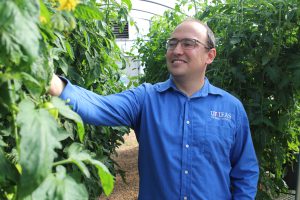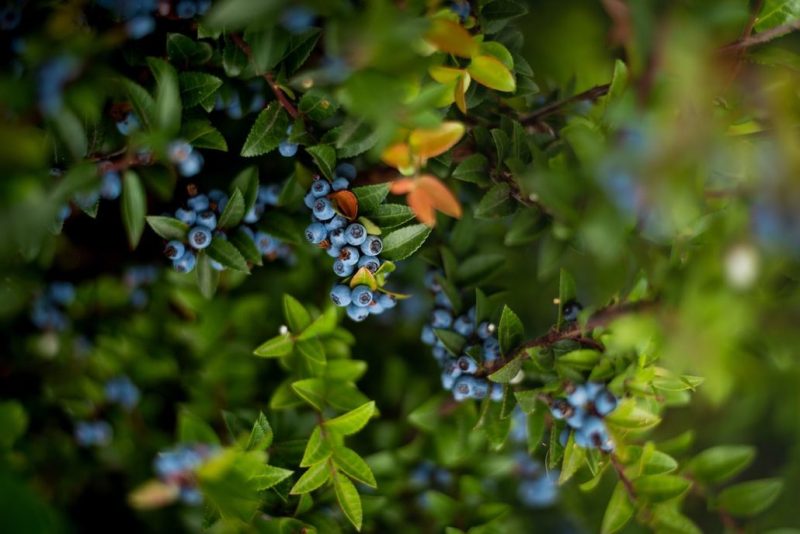UF/IFAS Researchers Creating an ‘Artificial Intelligence Connoisseur’
from UF/IFAS
by Brad Buck
Can a computer “taste” a tomato or a blueberry? Well, not exactly, but it can tell scientists which volatiles in these fruits make them taste good, say University of Florida researchers.
UF/IFAS breeder and geneticist Marcio Resende wants to create what he calls an “Artificial Intelligence Connoisseur,” a model that tells researchers which chemical compounds — that is to say, volatiles, sugars, acids and other chemical compounds — produce the best fruit flavors.
 To find out if a fruit or vegetable is worth breeding, scientists sample the crop for taste and smell themselves, going through fields and picking produce individually.
To find out if a fruit or vegetable is worth breeding, scientists sample the crop for taste and smell themselves, going through fields and picking produce individually.
These processes can present logistical issues, said Harry Klee, a UF/IFAS horticultural sciences professor and a co-author of a new study that looks at how computer models can use volatiles to measure fruit taste.
“Due to cost and logistical limitations, breeders do not typically employ consumer panels in their programs,” Klee said. “The ideal would be to use a large consumer panel that includes a diverse set of potential consumers. We use 100 people, spanning a range of age and ethnicity. This approach is much more representative of the population of shoppers.”
For years, plant breeders and geneticists helped farmers harvest higher yields because consumer-oriented traits such as flavor are harder to measure. However, high yields are not enough for producers to compete in nowadays demanding markets, said Patricio Muñoz, a UF/IFAS horticultural sciences associate professor in charge of the blueberry breeding program.
Producers know that if they do not include varieties that taste good, then their fruit might not sell for a good price or sell at all, said Muñoz. With these methods, scientists hope to help producers stay competitive and consumers have a better experience with their produce.
Using these models, a breeding program can assess flavor ratings for many fruit and vegetable varieties. This process was previously limited by the fact that neither scientists nor consumer panels can test very many varieties at once.
Resende led the new research that shows ways to get data from volatiles in blueberries and tomatoes into a statistical model. The research findings are now limited to those two fruits but will later be expanded to other crops UF/IFAS researchers develop.
To conduct their new study, UF/IFAS researchers used tomato and blueberry breeding program data from the past decade.
They gave a diverse set of tomato and blueberry varieties to consumer panels at the UF Sensory Lab in Gainesville. The scientists then collected ratings on flavor attributes such as “liking,” sweetness, sourness, flavor intensity and umami.
/// Read Full Article ///
Dr. Marcio Resende is current user in UF | ICBR’s Cytometry, Gene Expression & Genotyping and NextGen DNA Sequencing cores.


